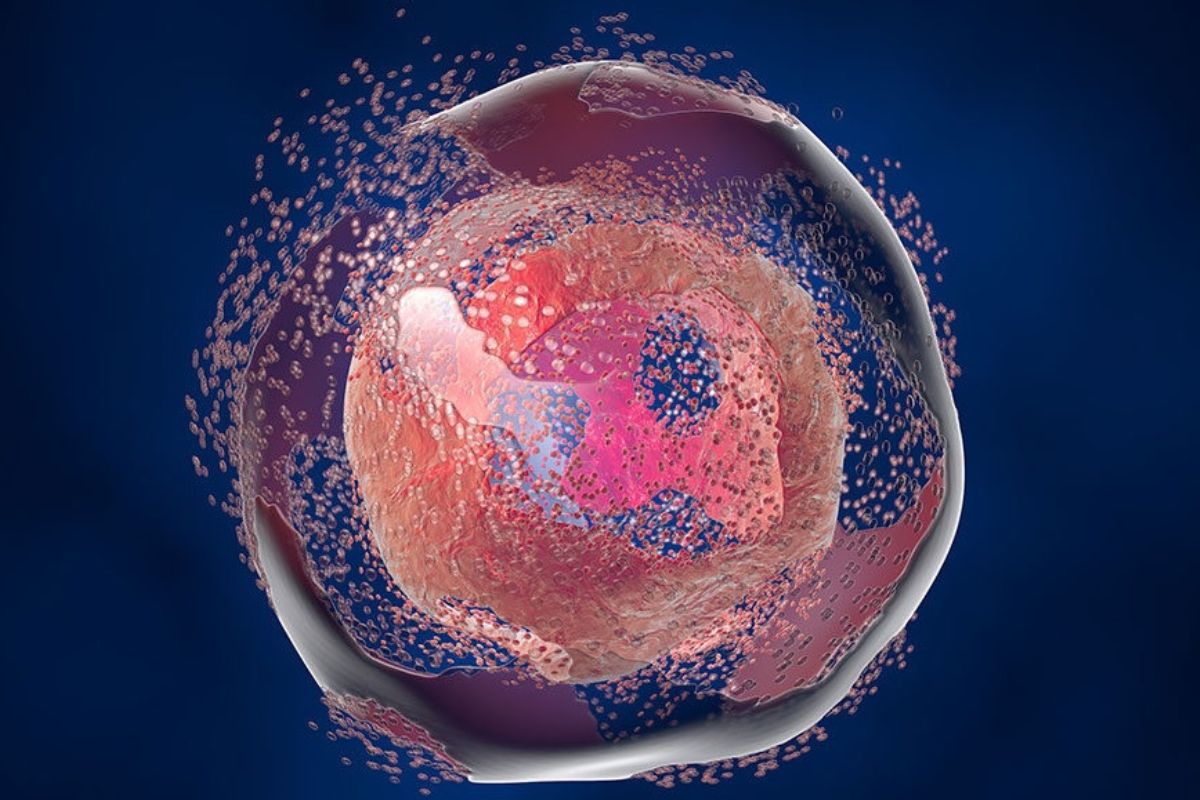
Apoptosis, often called programmed cell death, is a vital process in the body. It helps maintain balance by removing old, damaged, or unnecessary cells. Without it, our bodies would be overrun with malfunctioning cells, leading to diseases like cancer. But what exactly happens during apoptosis? Cells undergo a series of steps, including shrinking, breaking down their DNA, and sending out signals for cleanup. This process is crucial for development, immune system function, and overall health. Understanding apoptosis can shed light on many medical conditions and potential treatments. Ready to learn more? Here are 29 fascinating facts about apoptosis!
What is Apoptosis?
Apoptosis is a form of programmed cell death that plays a crucial role in maintaining the health of an organism. Unlike necrosis, which is a form of traumatic cell death resulting from acute cellular injury, apoptosis is a controlled, orderly process. Here are some fascinating facts about apoptosis:
-
The term "apoptosis" comes from a Greek word meaning "falling off," like leaves from a tree.
-
Apoptosis is essential for development, helping to shape organs and tissues by removing unnecessary cells.
-
This process is vital for immune system function, eliminating cells that could potentially cause autoimmune diseases.
-
Apoptosis helps prevent cancer by removing cells with damaged DNA that could become cancerous.
-
Cells undergoing apoptosis shrink and condense, unlike necrotic cells, which swell and burst.
How Apoptosis Works
Understanding the mechanisms behind apoptosis can be quite intriguing. The process involves a series of biochemical events leading to characteristic cell changes and death.
-
Apoptosis is triggered by signals from inside or outside the cell, known as intrinsic and extrinsic pathways.
-
The intrinsic pathway is often activated by internal stress, such as DNA damage or lack of oxygen.
-
The extrinsic pathway is initiated by external signals, like those from immune cells.
-
Caspases, a family of protease enzymes, play a central role in the execution phase of apoptosis.
-
Mitochondria release cytochrome c, which helps activate caspases in the intrinsic pathway.
Apoptosis in Development and Disease
Apoptosis is not just a cellular cleanup crew; it also plays a significant role in development and disease.
-
During embryonic development, apoptosis helps eliminate webbing between fingers and toes.
-
In the brain, apoptosis removes excess neurons, ensuring proper neural network formation.
-
Defects in apoptosis can lead to developmental disorders and diseases like cancer.
-
Some viruses can inhibit apoptosis to prolong the survival of infected cells.
-
Neurodegenerative diseases like Alzheimer's and Parkinson's involve excessive apoptosis of neurons.
Apoptosis and Cancer
The relationship between apoptosis and cancer is complex but crucial for understanding how to treat the disease.
-
Cancer cells often evade apoptosis, allowing them to survive and proliferate uncontrollably.
-
Many cancer treatments aim to induce apoptosis in cancer cells.
-
The p53 protein, often called the "guardian of the genome," plays a key role in triggering apoptosis in response to DNA damage.
-
Mutations in the p53 gene are found in about half of all cancers, leading to impaired apoptosis.
-
Targeting apoptotic pathways is a promising strategy for developing new cancer therapies.
Apoptosis in the Immune System
The immune system relies on apoptosis to maintain balance and function effectively.
-
Apoptosis helps eliminate infected or damaged cells, preventing the spread of infection.
-
Immune cells called T-cells can induce apoptosis in infected or cancerous cells.
-
Apoptosis ensures that immune responses do not become overactive, which could lead to autoimmune diseases.
-
During an immune response, apoptosis helps remove excess immune cells once the threat is eliminated.
-
Some pathogens have evolved mechanisms to inhibit apoptosis, helping them evade the immune system.
Apoptosis and Aging
Apoptosis also plays a role in the aging process, influencing how our bodies change over time.
-
As we age, the efficiency of apoptosis can decline, leading to the accumulation of damaged cells.
-
This decline in apoptosis is linked to age-related diseases like cancer and neurodegenerative disorders.
-
Research is ongoing to understand how modulating apoptosis could potentially extend lifespan and improve health in old age.
-
Caloric restriction has been shown to enhance apoptosis, which may contribute to its anti-aging effects.
The Final Word on Apoptosis
Apoptosis, or programmed cell death, is a vital process in maintaining the health of organisms. It helps remove damaged, old, or unnecessary cells, ensuring proper development and function. Without apoptosis, our bodies would struggle with diseases, including cancer and autoimmune disorders. This process is tightly regulated by various genes and proteins, making it a complex yet fascinating subject.
Understanding apoptosis can lead to breakthroughs in medical treatments, offering hope for new therapies targeting diseases at the cellular level. Scientists continue to study this process, uncovering more about how our bodies maintain balance and health.
Next time you hear about cell death, remember it's not just about destruction but also about life and renewal. Apoptosis is a testament to the intricate and beautiful mechanisms that keep us alive and thriving.
Was this page helpful?
Our commitment to delivering trustworthy and engaging content is at the heart of what we do. Each fact on our site is contributed by real users like you, bringing a wealth of diverse insights and information. To ensure the highest standards of accuracy and reliability, our dedicated editors meticulously review each submission. This process guarantees that the facts we share are not only fascinating but also credible. Trust in our commitment to quality and authenticity as you explore and learn with us.
